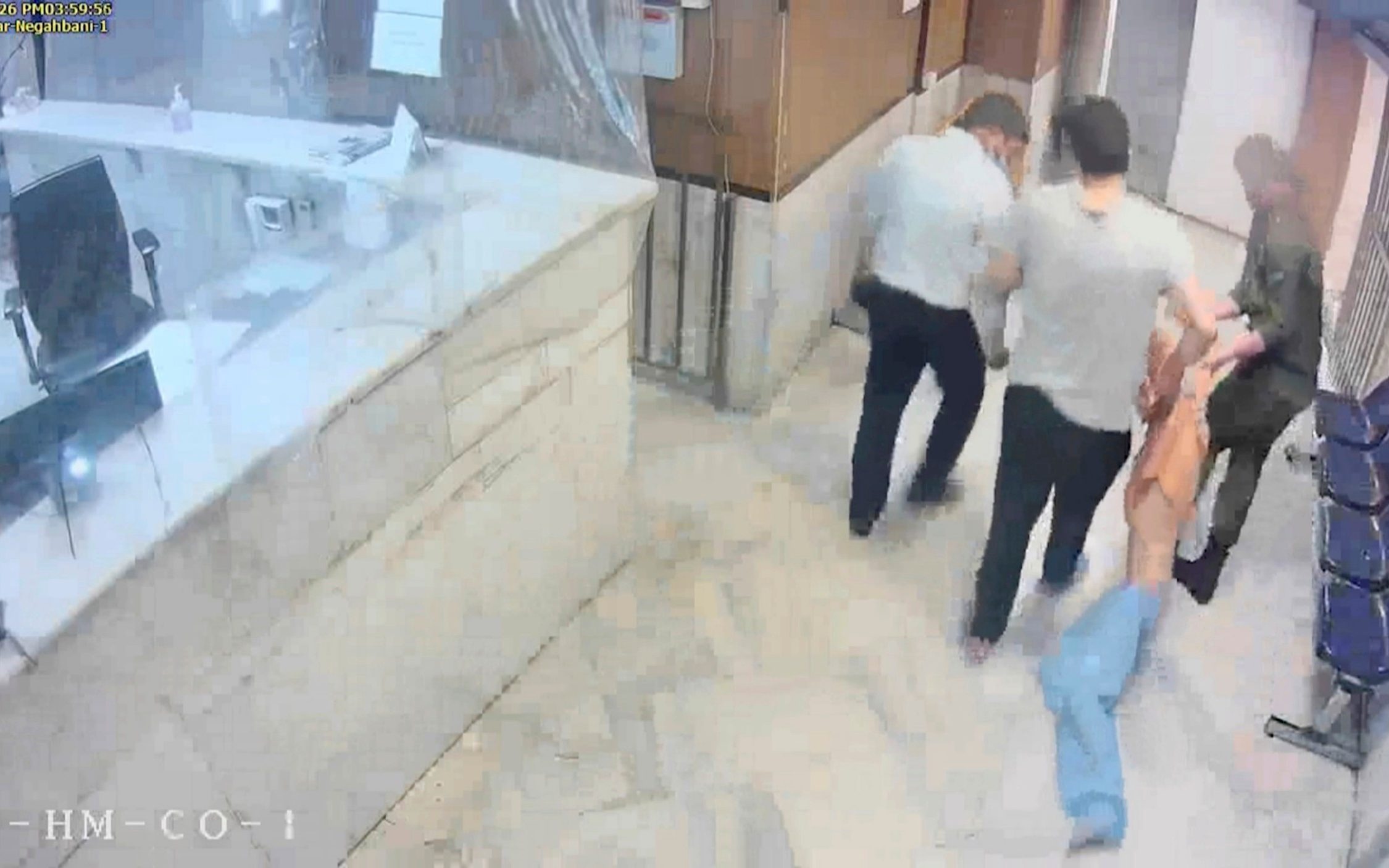Morad Full Video Leaked Privacy Controversy and Social Media Impact
In today’s hyper‐connected digital age, where news and controversies can go viral within minutes, the leak of personal content can trigger widespread debate and lasting repercussions. Recently, a series of explicit video clips allegedly featuring Spanish rapper Morad surfaced on social media platforms, stirring public outrage, curiosity, and a host of ethical concerns. This incident—commonly circulated under the hashtag #MoradFiltrado—has become a focal point for discussions on privacy, responsibility, and the power of social media to amplify sensitive content. The leaked videos have not only disrupted the personal life of Morad but have also ignited a broader conversation about the boundaries of personal privacy in the era of instant information sharing. In this article, we will explore the background of Morad, examine the details surrounding the video leak, discuss how social media played a critical role in spreading the content, and analyze the privacy and ethical issues that have arisen as a consequence of this incident.
Who Is Morad?
Morad, born Morad El Khattouti El Horami on March 5, 1999, is a Spanish rapper and singer whose rise to prominence has been as rapid as it has been dramatic. Hailing from the La Florida neighborhood of L’Hospitalet de Llobregat in Spain, Morad emerged from humble beginnings, a background that he has often referenced in his music. His personal story is one of overcoming hardship and defying the odds; he was raised by Moroccan parents and experienced a turbulent childhood that included time spent in a children’s home. Beginning to rap at the age of 14 with friends over WhatsApp, Morad’s authenticity and raw lyrical talent eventually helped him break into the urban music scene in Spain.
His musical style is primarily rooted in drill—a genre known for its gritty narratives and honest depictions of street life—which has strong cultural ties with French rap and Maghrebi influences. Morad’s breakthrough came with hits such as “Pepe” and his collaboration with Argentine producer Bizarrap on “Bzrp Music Sessions Vol. 47,” a track that skyrocketed in popularity and topped the Spanish charts. His discography, including his debut album M.D.L.R and subsequent projects, reflects the struggles, ambitions, and street narratives of a young artist determined to make a mark despite his challenging beginnings.
As Morad’s fame grew, so did public scrutiny. Every piece of news about him, whether it be about his music or his personal life, quickly became a trending topic. While his artistic output has resonated with many of his fans—who admire his honest storytelling and representation of life on the margins—the recent leak of his private video content has put his personal privacy under a microscope, intensifying debates about the responsibilities of both media and social platforms in protecting personal content.
The Leaked Video Incident
The incident at the heart of this controversy involves the circulation of intimate, X‐rated video clips that allegedly feature Morad in compromising circumstances. The leak, widely known by the moniker “Morad filtrado” (translated as “leaked Morad”), emerged on social media platforms, particularly on Twitter, where it was quickly disseminated using hashtags like #MoradPorno, #MoradLeaked, and #MoradVideoPorno. Within minutes, a torrent of posts—ranging from video links to memes and heated discussions—began to flood the internet.

According to the original SociallyKeeda article, these explicit clips have ignited intense debates among netizens. The content’s authenticity has not been officially confirmed by either Morad or his representatives; however, the sheer volume of shares and comments indicates that a significant portion of the online community believes in the legitimacy of the leak. This rapid circulation of sensitive material has raised critical questions: Who has the right to share private content without consent, and what are the repercussions for those who spread such material?
The leaked video incident is emblematic of a broader trend in today’s digital landscape, where personal boundaries are increasingly blurred by the ease with which content can be copied and shared. In the case of Morad, the video leak has not only compromised his privacy but has also exposed him to public judgment—a fate that is all too common in the era of viral media.
Beyond the immediate shock value, the leak has also served as a catalyst for discussions on the responsibility of individuals who repost and amplify such content. While some argue that public figures inherently risk a loss of privacy, others maintain that unauthorized sharing of intimate material is a clear violation of personal rights, regardless of one’s celebrity status.
Social Media’s Role in Amplifying the Leak
Social media platforms, with their real‐time updates and massive user bases, have become powerful conduits for the rapid spread of information—both good and bad. In the case of the Morad leak, Twitter’s unique algorithm and the nature of its trending topics played a crucial role in ensuring that the explicit video clips reached an enormous audience almost instantaneously.
When the leaked content first surfaced, Twitter’s algorithm immediately recognized the spike in activity around the hashtag #MoradFiltrado. The platform’s design, which prioritizes content based on engagement, inadvertently contributed to the spread by pushing these posts into the feeds of millions of users worldwide. As a result, what began as a localized incident soon escalated into a global conversation.

Users on Twitter did not just share the video links; they also contributed a wealth of opinions, memes, and commentary—each adding another layer to the ongoing discourse. This organic spread of information illustrates both the strengths and the pitfalls of social media: while it allows for rapid dissemination of news, it also provides fertile ground for sensationalism and misinformation. The fact that explicit material was being shared so freely raises important questions about the efficacy of content moderation on these platforms.
Moreover, the incident underscores the challenges that social media companies face in balancing free expression with the need to protect individuals’ privacy. Although platforms like Twitter have rules against sharing explicit content without consent, the sheer volume of posts surrounding the Morad leak made it extremely difficult to contain the spread. This situation highlights the need for improved moderation tools and stricter enforcement policies to ensure that such breaches of privacy do not become normalized in the digital age.
Privacy, Ethics, and Responsibility
At the core of the Morad video leak controversy lies a profound ethical dilemma: the unauthorized sharing of intimate content. Privacy is a fundamental human right, and the non-consensual distribution of private videos not only violates that right but also exposes individuals to undue scrutiny and potential harm. In an era where personal data is more vulnerable than ever, the incident serves as a stark reminder of the delicate balance between public interest and individual privacy.
The unauthorized leaking of explicit material, regardless of the person’s celebrity status, is an unequivocal breach of trust and an assault on personal dignity. While public figures may be subject to increased media attention, this does not grant others the right to access or disseminate their private lives without permission. The case of Morad brings to light the broader issues surrounding digital privacy: how can society safeguard individual rights when the very tools designed to connect us can also be used to invade our personal spaces?

Ethically, the situation is highly problematic. The spread of leaked intimate content not only tarnishes the reputation of the individual involved but also perpetuates a culture of voyeurism and exploitation. In many ways, such incidents normalize the invasive behavior of sharing and consuming personal content without consent. Moreover, the debate extends to the responsibilities of social media users themselves—should individuals refrain from clicking, sharing, or commenting on leaked content, knowing that doing so contributes to its virality?
The responsibilities here are twofold. First, social media platforms must reexamine and enhance their content moderation policies. While freedom of expression is a valued principle, it should not come at the expense of an individual’s privacy or well-being. Second, the public must cultivate a sense of digital ethics, where empathy and respect for privacy are prioritized over the mere thrill of accessing scandalous content. In a world inundated with viral material, choosing not to engage with or propagate non-consensual content becomes a significant act of solidarity with the victims of such breaches.
Public Reaction and the Aftermath
The fallout from the leak has been as varied as it has been intense. Public reaction ranges from shock and sympathy to harsh criticism and judgment, creating a polarized environment where personal privacy and public interest collide. For many fans and observers, the leak is a call to reassess the ethical boundaries of online behavior, while for others, it has become fodder for scandal and gossip.
On one side, supporters of Morad have expressed deep concern over the violation of his personal space, emphasizing that no matter how high-profile an individual might be, they are entitled to privacy. Social media commentators and privacy advocates alike have condemned the leak as an unacceptable breach, urging platforms to take stronger measures to prevent such incidents from recurring. These voices call for accountability—not just from those who share leaked content, but from the broader ecosystem that enables such behavior.
Conversely, there is a segment of the online community that appears more intrigued by the scandal, engaging in debates about the authenticity of the leaked videos and the implications for Morad’s career. Some argue that public figures inherently accept a certain degree of scrutiny; however, critics counter that the line between public interest and invasive behavior has been dangerously blurred. The controversy also opens up discussions about the role of consent in digital media and whether the dissemination of such material can ever be justified under any circumstances.

In the immediate aftermath, Morad’s representatives have remained silent on the matter, leaving fans and critics alike to speculate about the impact on his career and personal life. The lack of an official statement has only fueled further discussion, with many wondering if this incident could affect his musical output or public image in the long term. The absence of a clear response from Morad or his management also reflects a broader trend in the music industry, where personal scandals and controversies are often left to simmer in the public sphere without resolution.
Beyond the immediate reaction, the Morad leak has had broader implications for digital privacy norms. It has spurred calls for improved legal protections against the unauthorized sharing of personal content. Lawmakers, digital rights activists, and even tech companies are now engaged in discussions about how best to protect individuals from similar invasions of privacy in the future. The incident serves as a wake-up call, highlighting that current digital policies may not be sufficient to address the evolving challenges of our interconnected world.
The leak of Morad’s full video is a multifaceted incident that underscores the profound challenges posed by the digital era. It is not merely a scandal involving a celebrity—it is a reflection of deeper societal issues, including the erosion of personal privacy, the ethical implications of sharing explicit content without consent, and the immense power of social media platforms in shaping public discourse.
From the rapid spread of the leaked video on Twitter to the heated debates about privacy and accountability, this incident forces us to ask difficult questions about the balance between public curiosity and individual rights. While Morad’s music and personal story have earned him a dedicated fan base, this breach of privacy has demonstrated that fame does not grant immunity from ethical standards or the right to personal dignity.
In examining the incident, we see a clear narrative emerging: one where technology and social media, while offering unprecedented connectivity, also harbor the potential for significant harm. The case of Morad reminds us that the viral nature of online content comes with responsibilities that extend beyond mere entertainment. It calls on us as a society to advocate for stronger digital ethics and more robust privacy protections.
News -
Shruthi Narayanan Viral Video A Deep Dive into Privacy, Ethics, and Digital Controversy
Calla Pramuka Leaked Video Story The Viral Controversy and Its Impact on Digital Privacy
Aaron The Plumber Fight The Viral Showdown That Took the Internet by Storm
Aaron The Plumber Fight Video Twitter The Viral Clash That Took Social Media by Storm
Aubreigh Wyatt Doll Video 2 The Viral Sensation Captivating Audiences Worldwide
Jacob Savage Dryer Video With Rachel The Viral Moment That Captivated the Internet
Video Bokep Indonesia Terbaru Trends, Challenges, and Digital Evolution